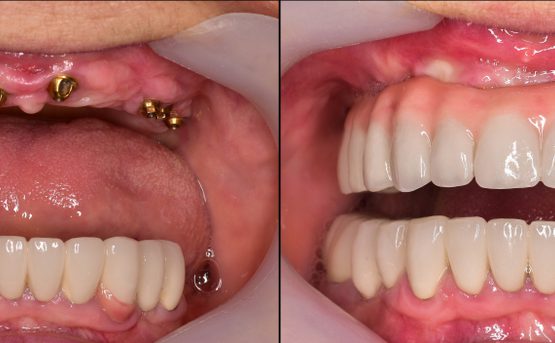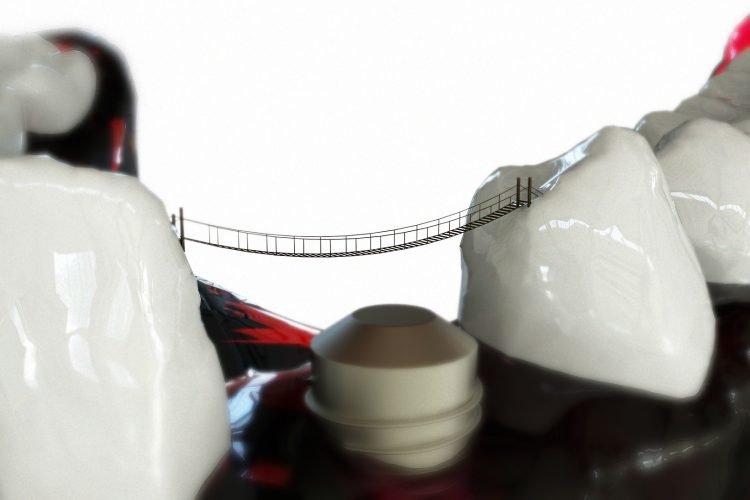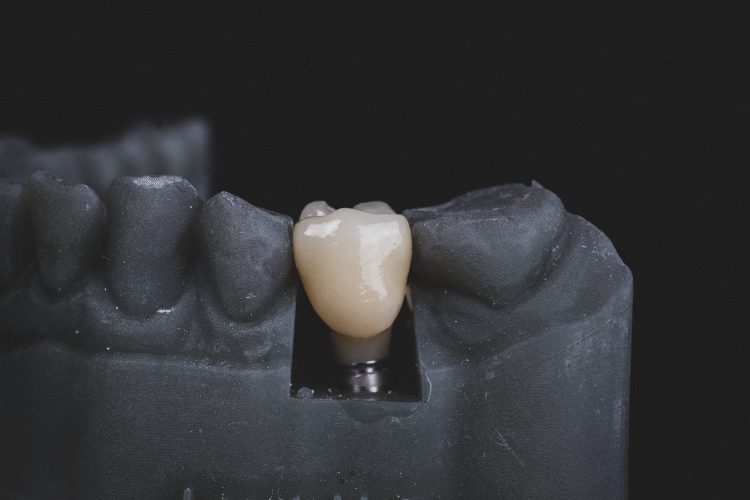EVERYTHING YOU NEED TO KNOW ABOUT DENTAL IMPLANTS
At any stage in our life, we may lose teeth. It is then that the dental implants, the finest example of cutting-edge technology a dentist can offer you, come to your rescue.
A dental implant is one of the most natural ways to replace your missing tooth. It is absolutely safe, has about 98% success rate, gives you a feeling of having a natural tooth in your mouth and protects your bone from gradual loss.
WHAT ARE DENTAL IMPLANTS?
In simple words, a dental implant is a screw made up of metal that, when drilled into your jaw bone, acts as the root of the tooth you have lost. This screw, with the help of a metallic fixture, called an ‘abutment’ will support a crown (cap) that will act as your tooth. This entire assembly made up of an implant that remains inside the bone and an abutment that supports your artificial tooth will be selected by the dentist depending upon the size and shape of the bone where an implant has to be fixed.


WHY SHOULD YOU CHOOSE A DENTAL IMPLANT AND NOT JUST A ‘BRIDGE’?
PROTECTION OF HEALTHY TEETH
When we lose a tooth, a gap forms in our mouth. If we choose to go for a ‘bridge’, the dentist reduces the size of the teeth adjacent to the lost tooth and with their support, a bridge is made to replace the natural tooth. Hence, to replace one tooth, a three-unit bridge has to be made. Whereas in implants, there is no need to cut perfectly healthy teeth. An implant is drilled directly into the gap where your natural tooth was.
Protection of jaw bone
Since a dental implant acts like the root of your missing tooth, it stimulates the bone and reduces its gradual loss which occurs more rapidly if you choose the ‘bridge’.
Natural Feel
An implant comes closest to being an almost perfect replacement for your missing natural tooth.
Stronger and durable than bridge
Since a dental implant is held in place by your jaw bone that is formed gradually around it, it is stronger. If you follow all the instructions from your dentist, it will go on for years.
Better chewing efficiency
An implant, in comparison to a bridge, imparts you with superior chewing experience and satisfaction.
WHAT HAPPENS BEFORE PLACING AN IMPLANT?
When you choose an implant, your dentist will ask you to go through a complete blood check-up to determine if you are suitable to go through a minor surgical procedure. It will include your haemoglobin, bleeding time, clotting time (INR), diabetes, high blood pressure, any history of heart or bone disease and pregnancy.
At this stage, please ensure that you inform your dentist about any medication that you take.
WHAT HAPPENS DURING PLACING AN IMPLANT?
You will be asked to come with a family member so that you are comfortable returning home. After giving anaesthesia, the dentist will sequentially drill a hole into your jaw bone and fix the implant. It may take 45 minutes to 1 hour to place a single implant. If you have got stitches, you will be recalled after 7 days to cut them. Normally, the body needs about 3 months to make a natural union between the implant and the bone. This union is called ‘Osseointegration’. It ensures the superior stability of an implant in the bone and gives you the feeling of having an almost real-like tooth.
WHAT HAPPENS AFTER PLACING AN IMPLANT?
You will have to make 2 to 3 appointments after 3 months of placing an implant to get the crown attached to the implant.
DIFFERENT KINDS OF IMPLANTS
Endosteal
The implant that goes into your bone is called an ‘endosteal’ implant. Made up of titanium, which is totally biocompatible with your body, it has threads all over its surface to ensure a better bonding with the bone.
Subperiosteal
These implants sit upon the surface of the bone.
Zygomatic
When your bone is too weak to support an implant, a dentist chooses a zygomatic implant that takes support from your cheekbone. It is a relatively new technique and costs more.
Immediate Implant
This is a technique where an implant is placed immediately after the extraction of the decayed or broken tooth, thereby eliminating the wait period between extraction and bone healing.
Different brands are available for the patients to choose from. These are- Nobel Biocare, Adin, Dentium.


F.A.Q.s REGARDING IMPLANTS
Can I get an implant if I am diabetic?
Yes you can, provided that your blood sugar level is within an acceptable limit and you are regularly taking your medications.
I recently had a heart attack. Can I get an implant?
You can get an implant only after at least 6 months have passed after your heart attack. It will be advisable that you let your physician know and gave their approval for the same. Also, please do tell your dentist if you are taking any blood-thinners.
I have high blood pressure. Will I bleed too much during implant surgery?
No, you will not if you keep your bp stable by regularly taking your medication.
I am 75 years old. Is it the right age to get an implant?
If you do not have any serious health problems, you are fit to receive the dental implants.
My bone is too thin. Will it be able to support the implant?
In case your bone is weak, a dentist can put artificial bone grafts.
I am very frightened of blood and surgeries. How do I make up my mind for the implant?
Surgery for implants is at most a minor procedure. If you feel frightened, read about the enormous benefits of implants and think whether you will be denying yourself a perfectly safe procedure just because of your fear.
